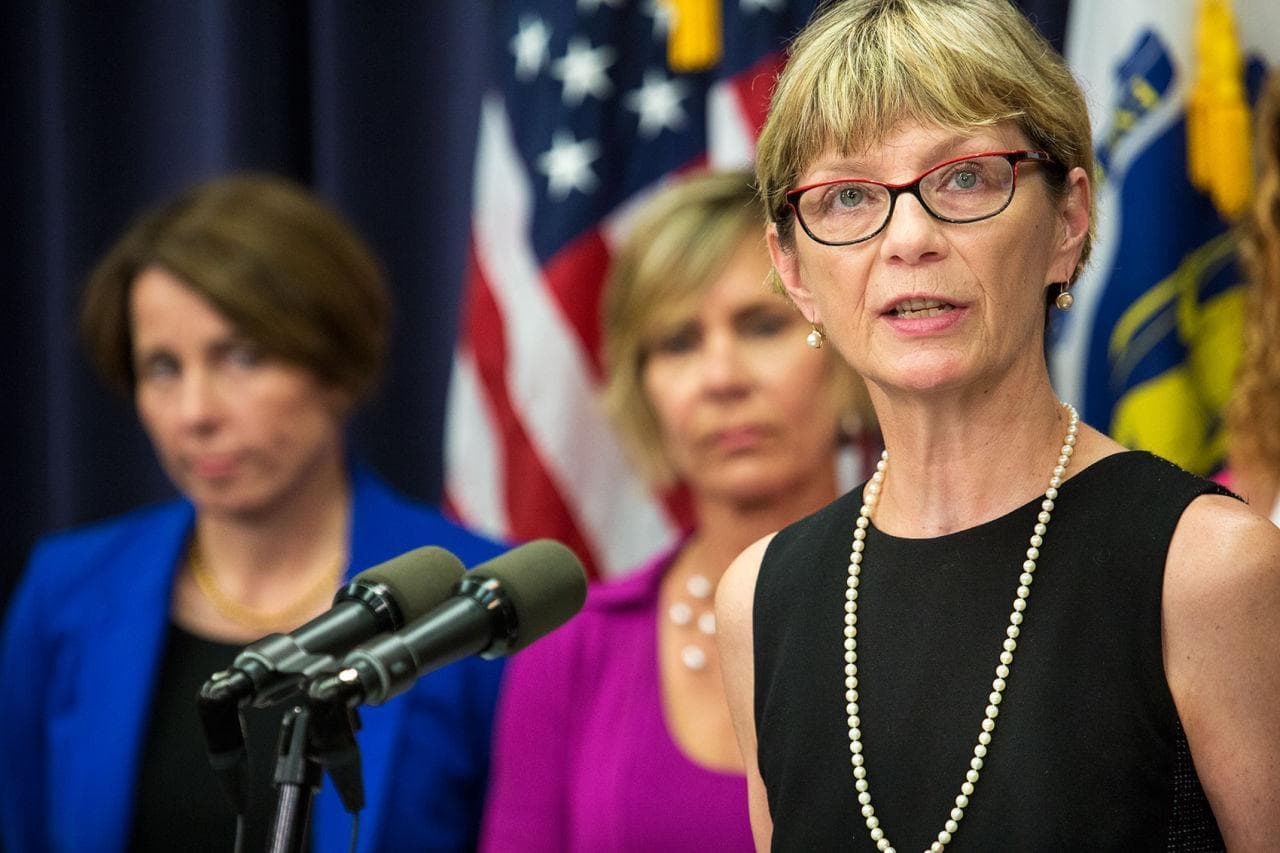Advertisement
Baker Announces Plan To Combat Opioid Addiction Epidemic
Resume
One person living in Plymouth County will die today from an overdose of heroin or another opiate. Gov. Charlie Baker says that sobering average, from just one county, offers a glimpse into the opioid epidemic that rages through every community in Massachusetts.
To combat this epidemic, Baker released a plan of attack. It includes 65 recommendations, drawn from a task force of experts who heard from 1,100 people this winter and spring, many of whom crowded into public hearings to tell their stories.
"Opioid addiction is a health care issue that knows no boundaries across age, race, class or demographics," Baker said during a press conference Monday. "From the Berkshires, to Boston, to Cape Cod, too many people have heart-wrenching stories of loved ones or friends who have battled with addiction and in some cases lost their lives. Opioid abuse is stealing the livelihood of our children, our siblings, relatives and friends, one person at a time."
The recommendations include more education for doctors, young people, those at risk for addiction and their family members about the dangers of pain killers. The state will look to add 100 treatment and recovery beds by this time next year. Pharmacists will be required to add pain prescriptions to a statewide database within 24 hours, much more quickly than the current seven days, which Massachusetts is working to connect to databases in other states.
"This is a complicated issue so there’s not going to be a simple fix," said Health and Human Services Secretary Marylou Sudders.
The Baker administration will rely on partnerships at the federal, state and local level to make many needed changes. One recommendation is to let medical residents prescribe a federally controlled treatment drug; another would increase or eliminate a cap on the number of patients to whom a doctor can prescribe the same drug, buprenorphine.

The state does not have, but will try to establish timely statewide reports on overdoses and deaths. Right now, Sudders says, the state has a general sense of so-called hot spots, areas with the highest number of deaths.
"Hot spots are in Fall River, New Bedford, Middlesex County has a very high rate of opioid deaths, Plymouth, Brockton," Sudders said. "The difference here is instead of using anecdotes, really use data to [identify] where we need to intervene."
Close to real-time data will help the state determine which towns need more Naloxone, the drug that temporarily reverses an overdose, or, which cities and towns need more treatment programs, beds and coaches to help substance abuse patients with recovery.
An underlying theme in the report is that substance abuse is a health care, not criminal, issue.
"We are not going to arrest or incarcerate our way out of this," said Attorney General Maura Healey. "This is a disease, a public health crisis and we must treat it as such."
Healey says she'll focus on making sure doctors are prescribing pain killers responsibly and that insurers are covering addiction as they would diabetes or asthma or any other chronic illness.
The Baker administration plans to spend $34.5 million to implement these recommendations, $27.8 million of which is new spending. The sum includes:
- $5.8 million to move substance abuse disorder out of prison and into Taunton State Hospital
- $14 million for recovery beds
- $5 million for school-based education
- $3 million for case managers and coordinators at MassHealth
The spending started last week with an $800,000 public service campaign.
In this video, Janis McGrory and her daughter Amy LeFort from Harwich tell the story of Liz, the daughter and sister who died from an accidental heroin overdose four years ago. McGory says Liz switched to heroin after taking a pain medication.
"Prescription drugs are dangerous. Parents be vigilant. Addiction is a disease and don’t be fooled, it can happen to anyone," McGrory said.
Baker's report is, in part, a commitment to Liz and 6,600 Massachusetts residents killed by opioids in the last decade — a commitment to slow or stop the epidemic.
"All of those with this disease matter. My daughter Liz still matters. And all who have died still matter," McGrory said.
Baker says he’ll issue updates on the results of his plan on a regular basis. Four of his proposals cannot take effect without approval from the state legislature. Baker and his aides say they are hopeful that working with partners, opioids will stop stealing so many lives.

